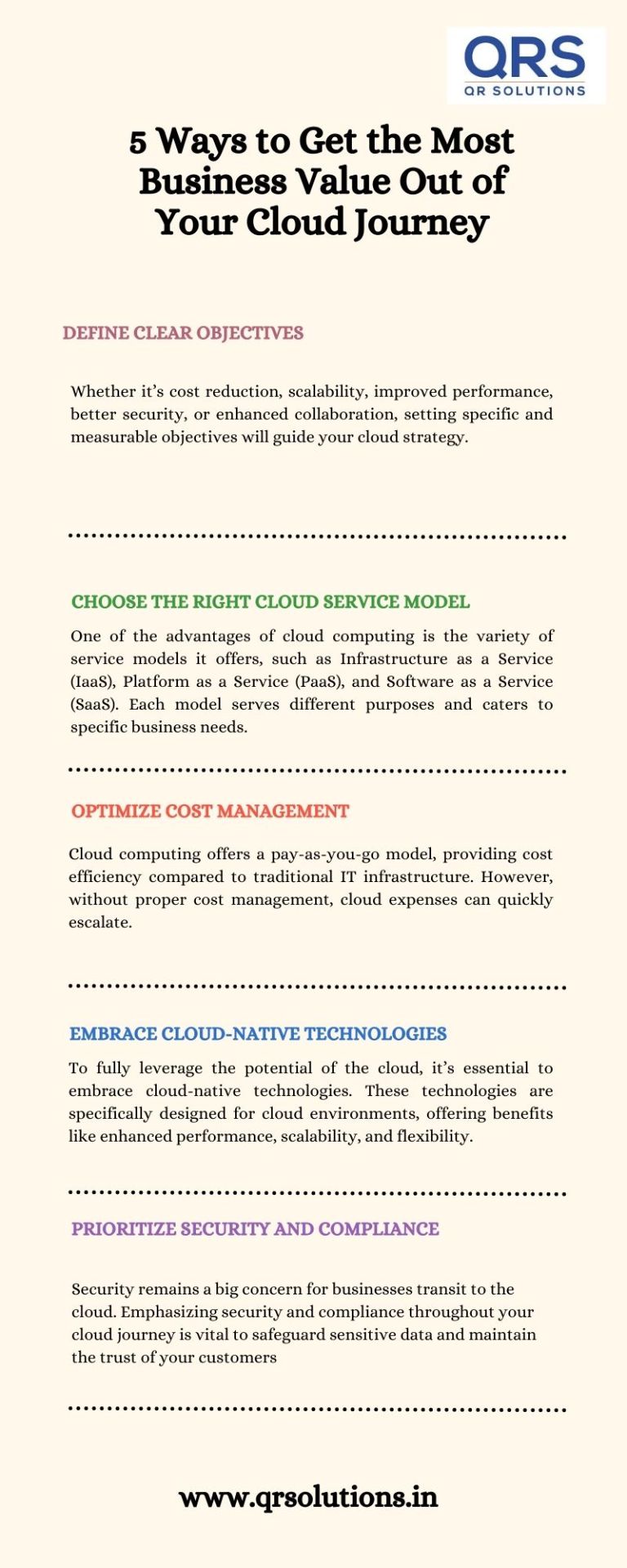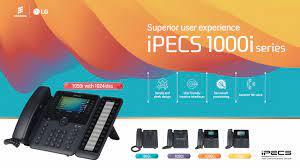#hybrid cloud solutions
Explore tagged Tumblr posts
Text
Rocket Software Unveils GenAI-Enhanced Hybrid Cloud Solutions for Modernization
Rocket Software has introduced new generative AI (GenAI) advancements to its Hybrid Cloud solutions, aiming to accelerate business application modernization and data integration. These innovations enhance organizational agility and decision-making by unlocking value from core business applications, helping bridge them into hybrid cloud strategies. New offerings include Rocket Content Smart Chat,…
0 notes
Text
Sify’s Hybrid Cloud: The Future of Flexible and Scalable IT Infrastructure
Today’s dynamic business operations demand that IT infrastructure be as flexible as possible to meet myriad needs. This is where hybrid cloud computing takes centerstage. For companies looking to strike a balance between security, scalability, and agility, hybrid cloud offers an appealing option by fusing the advantages of public and private cloud resources including on-premises infrastructure for storage and compute.
In the fast-paced world of business, flexibility, scalability, and security are crucial to maintaining a competitive edge. Sify’s Hybrid Cloud solutions offer enterprises the perfect blend of public and private cloud environments, enabling them to leverage the strengths of both to meet dynamic business needs. As a leader in cloud transformation, Sify empowers businesses to optimize resources, enhance security, and reduce operational complexities with its robust hybrid cloud infrastructure.
Learn More
To explore how Sify’s Hybrid Cloud can transform your cybersecurity strategy and protect your business from evolving threats, read our detailed blog post: https://www.sifytechnologies.com/blog/what-is-hybrid-cloud/
Discover how Sify’s Hybrid Cloud can provide you with the expertise, technology, and support needed to ensure your organization’s security. Embrace a proactive approach to cybersecurity with Sify and safeguard your digital assets effectively.
0 notes
Text
5 Key Cloud Computing Trends to Watch

Stay ahead of the curve with the latest cloud computing trends. Explore the top 5 key trends shaping the future of cloud technology, including AI integration, multi-cloud strategies, and enhanced security solutions for businesses. Visit now to read 5 Key Cloud Computing Trends to Watch
#Cloud Computing Trends#cloud computing industry#Edge Computing#Multi-Cloud Strategies#Hybrid Cloud Strategies#Serverless Computing#serverless computing benefits#hybrid cloud#hybrid cloud solutions#future of cloud computing#trends in cloud computing#hybrid cloud computing trends
0 notes
Text
Unlock the full potential of your IT infrastructure with our comprehensive hybrid cloud services. We seamlessly integrate on-premises and public cloud environments to deliver optimal performance, scalability, and security. Our services include cloud assessment and strategy, digital transformation, cloud governance, and migration. We specialize in creating tailored hybrid cloud solutions that drive innovation, enhance operational efficiency, and ensure compliance. With expertise in AWS, Azure, and Google Cloud, we provide end-to-end support to help businesses achieve their digital transformation goals.
#Hybrid cloud services#Hybrid Cloud Solutions#hybrid cloud providers#hybrid cloud computing providers#hybrid cloud managed services
0 notes
Text
Bridging the Digital Divide: Cloud Connectivity Services & IT Infrastructure Solution Providers
The digital age has ushered in a paradigm shift in how we access information, conduct business, and connect with the world. Cloud computing, with its scalability, flexibility, and cost-effectiveness, has become the cornerstone of this transformation. However, seamlessly connecting to and leveraging the power of the cloud requires a robust infrastructure. This is where Cloud Connectivity Services and IT Infrastructure Solution Providers come into play.
Demystifying the Cloud: Understanding the Connectivity Challenge
Imagine a vast library of resources – data, applications, and computing power – readily accessible from anywhere, anytime. That's the essence of cloud computing. However, accessing these resources requires a reliable and secure connection between your on-premises systems and the cloud environment. This is where Cloud Connectivity Services step in.
Cloud Connectivity Services encompass the technologies and solutions that enable secure and efficient connections between your organization's IT infrastructure and various cloud platforms like Amazon Web Services (AWS), Microsoft Azure, or Google Cloud Platform (GCP). Here's a closer look:
Dedicated Connections: These high-bandwidth, private lines provide a direct and secure connection between your network and the cloud provider, bypassing the public internet. This ensures consistent performance and lower latency, crucial for mission-critical applications.
Virtual Private Networks (VPNs): VPNs create a secure tunnel over the public internet, allowing your devices to connect to the cloud as if they were part of your internal network. This offers a cost-effective alternative to dedicated connections for less latency-sensitive applications.
Software-Defined Networking (SDN): SDN offers greater control and flexibility over network traffic routing. Cloud connectivity services leverage SDN to optimize data flow between your on-premises network and the cloud, ensuring efficient resource utilization.
Beyond Connectivity: The Role of IT Infrastructure Solution Providers
Cloud connectivity is just one piece of the puzzle. IT Infrastructure Solution Providers offer a comprehensive suite of services to design, build, and manage your entire IT infrastructure, ensuring it seamlessly integrates with the cloud. Here's what they bring to the table:
Cloud Migration Strategy: Migrating an entire IT infrastructure to the cloud can be complex. Solution providers develop a customized cloud migration strategy, taking into account your specific needs and ensuring a smooth transition.
Hybrid Cloud Solutions: Many businesses opt for a hybrid cloud approach, combining on-premises infrastructure with cloud resources. Solution providers can design and implement a hybrid cloud architecture that maximizes efficiency and security.
Managed IT Services: Managing an IT infrastructure can be resource-intensive. Solution providers offer managed IT services, taking care of day-to-day operations like network management, security updates, and user support, allowing you to focus on your core business.
Disaster Recovery Planning: Any downtime can be detrimental in the digital age. Solution providers assist in developing a comprehensive disaster recovery plan to ensure business continuity in case of unforeseen events.
The Power Duo: Cloud Connectivity & IT Infrastructure Working Together
Cloud Connectivity Services and IT Infrastructure Solution Providers, though distinct entities, work together to empower your organization's digital transformation journey. Here's how they collaborate:
Seamless Cloud Integration: Cloud connectivity solutions ensure a reliable and secure connection to the cloud, while IT infrastructure solution providers design and implement an infrastructure that integrates seamlessly with cloud services. This allows for efficient data transfer and optimal utilization of cloud resources.
Enhanced Agility and Scalability: The cloud offers on-demand scalability, allowing you to adapt your IT infrastructure to meet changing business needs. Cloud connectivity and IT infrastructure solutions work together to facilitate this scalability, ensuring your infrastructure can grow or shrink as your requirements evolve.
Improved Security: Both cloud connectivity services and IT infrastructure solution providers prioritize security. They implement robust security measures to protect your data at rest and in transit, ensuring a secure cloud environment.
The Future Landscape: Embracing Innovation
The cloud computing landscape is constantly evolving, and both Cloud Connectivity Services and IT Infrastructure Solution Providers are adapting to meet the demands of the future. Here are some key trends to watch:
The Rise of Multi-Cloud: Businesses are increasingly adopting a multi-cloud strategy, leveraging the strengths of different cloud providers. Cloud connectivity solutions will need to evolve to manage connections to multiple cloud environments seamlessly.
Edge Computing: Processing data closer to its source, at the "edge" of the network, is becoming increasingly important. Solution providers will need to design infrastructure that integrates with edge computing deployments.
Focus on Security: As cyber threats become more sophisticated, security will remain a top priority. Cloud connectivity and IT infrastructure solutions will need to incorporate advanced security features like encryption, threat detection, and intrusion prevention.
Conclusion: Empowering the Digital Future
Cloud Connectivity Services and IT Infrastructure Solution Providers
#cloud solution#connectivity solutions#public cloud providers#hybrid cloud provider#iaas service providers#multi cloud solutions#hybrid cloud solutions#network infrastructure solutions#network technology solutions
1 note
·
View note
Text
Exploring Hybrid Cloud Solutions: Benefits and Challenges
In today's digital landscape, the term "cloud computing" has become increasingly prevalent. But what exactly does it mean? And how does it impact businesses and individuals alike? In this article, we'll delve into the world of hybrid cloud solutions, exploring their benefits and challenges in simple, understandable terms.

1. Understanding Hybrid Cloud Solutions
Before delving into the benefits and challenges of hybrid cloud solutions, let's first understand what they entail. A hybrid cloud solution combines public and private cloud services, allowing organizations to leverage the benefits of both. This means that some data and applications are stored and managed in a public cloud, while others reside in a private cloud or on-premises infrastructure.
2. Benefits of Hybrid Cloud Solutions
Scalability and Flexibility
One of the key advantages of hybrid cloud solutions is their scalability and flexibility. Organizations can easily scale their infrastructure up or down based on changing demands without incurring significant costs. This flexibility enables them to adapt to fluctuating workloads and business requirements effectively.
Cost-Effectiveness
Hybrid cloud solutions offer cost-effectiveness by allowing organizations to optimize their IT spending. By leveraging both public and private cloud services, businesses can allocate resources efficiently, reducing overall operational costs while maintaining performance and security.
Security Concerns and Solutions
Security is a top priority for any organization, and hybrid cloud solutions address this concern effectively. By combining private and public clouds, businesses can segregate sensitive data and applications, keeping them secure in a private environment while leveraging the scalability and accessibility of public cloud services.
Integration with Existing Infrastructure
Another benefit of hybrid cloud solutions is their seamless integration with existing infrastructure. Organizations can retain legacy systems and on-premises applications while gradually migrating to the cloud, ensuring minimal disruption to operations and maximizing ROI.
Simplified Disaster Recovery
Hybrid cloud solutions offer enhanced disaster recovery capabilities by providing redundant backup and failover options. In the event of a system failure or data breach, organizations can quickly recover their operations and minimize downtime, ensuring business continuity and mitigating potential losses.
3. Challenges of Hybrid Cloud Solutions
Data Management and Compliance
One of the challenges of hybrid cloud solutions is effectively managing data across disparate environments while ensuring compliance with industry regulations and data protection laws. Organizations must implement robust data management policies and security measures to safeguard sensitive information and maintain regulatory compliance.
Complexity in Management
Managing a hybrid cloud environment can be complex, requiring specialized skills and expertise. IT teams must navigate multiple platforms, vendors, and deployment models, leading to increased complexity in configuration, monitoring, and troubleshooting.
Connectivity Issues
Connectivity issues can arise in hybrid cloud environments due to dependencies on network infrastructure and internet connectivity. Organizations must ensure reliable and high-speed connections to maintain seamless access to cloud resources and applications.
Potential Downtime
Despite redundancy and failover mechanisms, hybrid cloud solutions are susceptible to downtime, whether due to hardware failures, software bugs, or cyberattacks. Organizations must implement robust contingency plans and disaster recovery strategies to minimize the impact of potential outages.
Staff Training and Skill Set Requirements
Adopting hybrid cloud solutions requires IT teams to acquire new skills and expertise to effectively manage and optimize cloud infrastructure. Organizations must invest in staff training and development programs to bridge skill gaps and ensure operational efficiency.
Vendor Lock-In
Vendor lock-in is a concern for organizations leveraging hybrid cloud solutions, as reliance on a single provider can limit flexibility and hinder migration efforts. Businesses must carefully evaluate vendor contracts and negotiate terms to avoid potential lock-in and maintain flexibility in their cloud strategy.
Conclusion
In conclusion, hybrid cloud solutions offer a compelling array of benefits, including scalability, cost-effectiveness, and enhanced security. However, they also present challenges such as data management complexities, connectivity issues, and staff training requirements. By understanding these benefits and challenges, organizations can make informed decisions when adopting hybrid cloud solutions to drive innovation and growth.
FAQs (Frequently Asked Questions)
1. What is a hybrid cloud solution?
A hybrid cloud solution combines public and private cloud services, allowing organizations to leverage the benefits of both environments for improved scalability, flexibility, and security.
2. How does a hybrid cloud solution enhance scalability?
Hybrid cloud solutions enable organizations to scale their infrastructure up or down based on changing demands by leveraging both public and private cloud resources effectively.
3. What are the security considerations of hybrid cloud solutions?
Security concerns in hybrid cloud solutions include data protection, compliance with regulations, and ensuring secure access to cloud resources while maintaining confidentiality and integrity.
4. How can organizations address connectivity issues in hybrid cloud environments?
Organizations can address connectivity issues by investing in reliable network infrastructure, optimizing internet connectivity, and implementing redundancy and failover mechanisms to ensure continuous access to cloud resources.
5. What steps can organizations take to mitigate potential downtime in hybrid cloud environments?
To mitigate potential downtime, organizations should implement robust contingency plans, backup and disaster recovery strategies, and regularly test their systems to identify and address vulnerabilities proactively.
0 notes
Text
AWS Hybrid Cloud Solutions: A Comprehensive Guide to Benefits and Implementation
#Hybrid Cloud Solutions#AWS Hybrid Cloud Solutions#Cloud Solutions#Amazon Web Services Company In India#Amazon Web Services Company India#Cloud Computing#AWS Services Company#AWS Services India#Lucid Outsourcing Solutions#Lucid Outsourcing#Lucid Solutions
0 notes
Text
Business Intelligence Solutions: Unleashing the Power of Managed Analytics

In today's dynamic business landscape, the effective utilization of data is pivotal for informed decision-making and sustained growth. Business Intelligence (BI) solutions have emerged as a cornerstone, offering organizations the ability to glean actionable insights from their data. This article explores the transformative impact of BI solutions and how managed analytics, coupled with outsourced IT management, is reshaping the way businesses harness the power of data.
1. Proactive IT Support and Managed IT Services:
BI solutions thrive in an environment supported by proactive IT services. Managed IT services, which include proactive support and maintenance, ensure the seamless operation of BI tools. This proactive approach not only enhances the reliability of analytics but also minimizes downtime, allowing businesses to make real-time decisions.
2. Advanced Analytics and Data Visualization Services:
Managed analytics encompass advanced analytics services that go beyond basic reporting. Data visualization services play a crucial role, translating complex data sets into visually appealing and understandable insights. This facilitates better communication and comprehension of data-driven findings across all levels of an organization.
3. Cloud Management Solutions and Migration Strategies:
The integration of cloud management solutions is a game-changer for BI. Cloud migration solutions offer scalability, flexibility, and cost-efficiency. Managed BI services leverage cloud optimization solutions, ensuring that businesses make the most of cloud resources while maintaining peak performance.
4. Data Science Solutions and Hybrid Cloud Integration:
BI solutions often involve intricate data science methodologies. Managed analytics extend to data science solutions, enabling organizations to employ predictive analytics and machine learning for more accurate forecasting. Hybrid cloud solutions provide the necessary infrastructure for hosting and processing data across different environments securely.
5. IT Consultation Services and Strategic Managed Services:
Strategic IT consultation services are instrumental in aligning BI strategies with overall business objectives. Managed services, including serverless computing and big data consulting, are designed to optimize the performance of BI tools, ensuring they adapt to evolving business requirements.
6. Cloud Consulting Services and Holistic Cloud Management:
BI solutions benefit from specialized cloud consulting services. These services guide organizations in selecting the most suitable cloud platforms and architectures for their BI needs. Holistic cloud management services oversee the entire cloud ecosystem, ensuring optimal performance and security.
In conclusion, the convergence of BI solutions and managed analytics is reshaping the way businesses interpret and leverage their data. With the right blend of outsourced IT management, advanced analytics, and cloud solutions, organizations can unlock the full potential of their data, gaining a competitive edge in today's data-driven era.
#it consultation services#managed service#serverless computing#big data consulting#business intelligence solutions#Scholarnest#Scholarnest Technologies#cloud consulting services#cloud management#cloud management services#data visualization services#managed it services#advanced analytics services#cloud management solution#cloud migration solutions#cloud optimization solutions#data science solutions#hybrid cloud solutions#outsourced it management#proactive it support
0 notes
Text

In today’s fast-paced digital landscape, the cloud has emerged as a transformative technology that empowers businesses with flexibility, scalability, and cost-effectiveness. Migrating to the cloud is no longer an option but a necessity to stay competitive.
#Cloud migration strategies#Business value optimization#Cloud journey best practices#Cloud adoption benefits#Cost-effective cloud utilization#Cloud-native applications#Cloud scalability#Hybrid cloud solutions#Cloud security measures#Cloud cost management#Cloud performance monitoring#Cloud vendor selection#Cloud infrastructure optimization#Cloud data management#Agile cloud transformation
0 notes
Text
A Detailed Guide on Cloud Phone Systems or Cloud Solutions
Cloud-based phone systems have become immensely popular in businesses across the globe. Several service providers have jumped into the business and offering cloud phone systems based on VoIP technology. This has only helped companies to cut down business communication-related expenditures and, at the same time, enjoy better flexibility and scalability.

What Are Cloud-Based Phone Systems?
Cloud-based phone systems or cloud solutions are a kind of telephone service that allows businesses to place calls over the Internet. Cloud phone solutions are hosted outside secure data centers, and the benefit is that companies will not have to install any hardware at the workplace or hire a team to manage it. It is also given the name of cloud PBX or hosted PBX, but the difference is that it uses VoIP technology to manage calls over the cloud IP network.

Do You Seriously Need A Cloud Phone System?
There is no doubt that secure cloud systems can be beneficial for businesses as they trim down expenditures and ensure smooth performance. These phone systems are suitable for small businesses and large corporations also. While determining whether you need it or not, here are a few points to keep in mind.
• The Available Equipment
• The Telecommunication Budget
• Requirements Related To Flexibility
• Requirements Related To Business Scalability
• Level of Control You Want Over the Business Communication System

Features of Cloud Solutions
These systems are highly advanced and have features that are not seen in the traditional phone or on premise PBX systems. As a business owner, you will get the flexibility to add and remove parts as per your business’s requirements. Some major functions found in cloud solutions are listed below.
• Unified Communication
• Inexpensive International Calling
• Video Conferencing To Make Remote Working Easier
• Multiple Device Support
• Instant Messaging To Several Devices in One Click
• Artificial Intelligence like Converting Speech-To-Text and Performing Sentiment Analysis
• Auto Attendant
• Collaboration Features
• Virtual Voicemail
• Voicemail to Email Transcription
• Sip Forking
• Ring Groups Integration
• Block List and Allow List
• Interactive Voice Response or IVR
• Direct Inward Dialling or DID
With these features, these cloud solutions offer several benefits, like they become a cost-saving decision. Businesses can also be assured of full-proof security and ease of use. With these cloud solutions, they have access to the latest telecommunication features, and also these cloud solutions are highly flexible and scalable.
#cloud solutions#secure cloud#cloud systems#Cloud-based phone systems#iPECS Cloud#Ericsson-LG iPECS Cloud platform#cloud collaboration tools#cloud systems integrations#cloud computing technology#hybrid cloud solutions#Cloud Solution supports#integrated cloud solutions#secure cloud services#phone systems cloud system#Business phone cloud solutions#video conferencing cloud secure#communication solutions#leading communications supplier
1 note
·
View note
Text

Streamline your business operations with Magtec ERP! 🚀 We offer exceptional technical support, competitive pricing, thorough oversight features, a reliable process framework, and stay up-to-date with the latest software developments. 💻 Book a demo today and see how Magtec ERP can transform your business! ✨
#magtec#erp#automation#business#efficiency#software#technology#innovation#digitaltransformation#enterprise#solutions#productivity#success#growth#management#finance#humanresources#supplychain#logistics#cloud#saas#onpremises#hybrid#integration#scalability#customization#support#trustedpartner#magtecerp#magtecsolutions
2 notes
·
View notes
Text
Streamline Your Workflow with Microsoft 365 Suite Deployment Services in 2025
In today’s fast-paced business environment, achieving efficiency and seamless collaboration is critical to staying ahead. The Microsoft 365 Suite offers a comprehensive range of tools designed to streamline workflows, enhance productivity, and foster better communication. However, to unlock its full potential, businesses need tailored deployment services that align with their specific goals and operational requirements.

Why Microsoft 365 Suite is Essential in 2025
Unified Communication and Collaboration Microsoft Teams, SharePoint, and Outlook provide integrated platforms that support real-time communication, file sharing, and collaboration across teams—whether they’re in the same office or dispersed globally.
Enhanced Productivity with AI and Automation Tools like Microsoft Viva and Power Automate bring AI-driven insights and automation capabilities, enabling businesses to reduce manual tasks and focus on strategic initiatives.
Scalable and Secure Solutions With advanced security features and compliance tools, Microsoft 365 ensures businesses can scale their operations confidently while safeguarding sensitive data.
Flexibility for Hybrid Work Models The suite’s cloud-based architecture empowers employees to work from anywhere, ensuring a seamless transition between remote and on-site operations.
The Importance of Professional Deployment Services
While Microsoft 365 offers robust features, implementing it effectively can be challenging without expert guidance. Professional deployment services are crucial for:
Customised Solutions: Tailoring the suite’s features to your business’s unique needs ensures maximum ROI.
Efficient Migration: Migrating data from legacy systems with minimal disruption requires technical expertise.
Training and Support: Ensuring your teams are equipped to leverage the suite effectively enhances adoption rates.
Ongoing Optimisation: Regular assessments and updates keep your systems aligned with evolving business objectives.
Addressing Modern Business Challenges
Reducing Silos By integrating tools like Teams, OneDrive, and Planner, organisations can eliminate data silos and promote cross-departmental collaboration.
Improving Decision-Making Power BI within Microsoft 365 provides actionable insights through real-time analytics, enabling leaders to make informed decisions swiftly.
Boosting Employee Engagement Features like Viva Insights prioritise employee well-being and productivity, helping organisations retain top talent.
Key Considerations for Microsoft 365 Deployment
Assess Your Business Needs: Understand your current challenges and how Microsoft 365 can address them.
Plan for Change Management: Foster a culture of adaptability to ensure smooth adoption.
Focus on Security: Leverage tools like Microsoft Defender to mitigate cybersecurity risks.
Partner with Experts: Collaborate with experienced providers to ensure a seamless deployment process.
Conclusion
Microsoft 365 Suite is not just a productivity tool; it’s a strategic asset for driving innovation and efficiency in 2025. By partnering with a trusted deployment service provider, businesses can ensure a smooth transition, empowering their teams to achieve more while staying agile in a competitive landscape.
Ready to revolutionise your workflow? Explore how Microsoft 365 Suite deployment can transform your business today.
#Microsoft 365 Suite deployment#Microsoft 365 migration services#Cloud-based collaboration tools#Hybrid work solutions#Microsoft Teams integration#Secure data management#AI-driven business tools#Customised Microsoft 365 implementation#Enhanced business collaboration#Power BI analytics for businesses#Microsoft 365 professional deployment#Data security in Microsoft 365#Employee engagement with Microsoft Viva
0 notes
Text
Sify’s Hybrid Cloud Solutions: Bridging the Gap Between On-Premises and Cloud
In the rapidly evolving digital landscape, businesses face the dual challenge of maintaining legacy systems while adopting new technologies. The need to balance flexibility, scalability, and security has led to the rise of hybrid cloud solutions. At the forefront of this transformation is Sify Technologies, with its robust Hybrid Cloud solutions, designed to offer enterprises the best of both worlds: the agility of the cloud and the control of on-premises infrastructure.
The Power of Hybrid Cloud
Hybrid cloud is more than just a blend of public and private clouds; it is a strategic approach that allows businesses to optimize their IT resources by leveraging the strengths of both environments. By combining on-premises infrastructure with cloud-based services, hybrid cloud enables enterprises to deploy workloads where they are most efficient, secure, and cost-effective.
Sify’s Hybrid Cloud solutions empower organizations to seamlessly integrate their existing IT infrastructure with cloud environments, creating a unified and flexible ecosystem that supports their digital transformation goals.
Key Benefits of Sify’s Hybrid Cloud Solutions
Seamless Integration: Sify’s Hybrid Cloud solutions are designed to integrate seamlessly with an organization’s existing IT environment. Whether it’s legacy systems, private cloud, or public cloud platforms like AWS, Azure, or Google Cloud, Sify ensures that all components work together harmoniously.
Flexibility and Scalability: One of the biggest advantages of hybrid cloud is its flexibility. Sify’s solutions allow businesses to scale their IT resources up or down based on demand, ensuring that they only pay for what they use. This agility is crucial in today’s fast-paced business environment, where needs can change rapidly.
Enhanced Security: With Sify’s Hybrid Cloud, businesses can keep their most sensitive data and critical workloads on-premises or in a private cloud, while leveraging the public cloud for less-sensitive operations. This hybrid approach offers enhanced security and compliance, giving businesses the control they need over their data.
Cost Efficiency: Hybrid cloud allows businesses to optimize costs by using public cloud resources for variable workloads while maintaining on-premises infrastructure for predictable, steady-state workloads. Sify’s Hybrid Cloud solutions are designed to maximize cost efficiency, helping businesses achieve their financial goals.
Business Continuity and Disaster Recovery: Sify’s Hybrid Cloud solutions provide robust disaster recovery options by allowing businesses to replicate critical workloads to the cloud. In the event of a disruption, businesses can quickly failover to the cloud, ensuring continuity and minimizing downtime.
Improved Performance and Latency: By keeping critical workloads on-premises or in a nearby private cloud, businesses can reduce latency and improve performance for applications that require real-time processing. Sify’s Hybrid Cloud solutions are optimized for high performance, ensuring that businesses can meet their operational needs.
Sify’s Approach to Hybrid Cloud
Sify Technologies takes a holistic approach to hybrid cloud, focusing on three key areas: strategy, implementation, and management.
Strategic Planning: Sify works closely with clients to develop a hybrid cloud strategy that aligns with their business objectives. This involves assessing current infrastructure, identifying workloads that can be migrated to the cloud, and determining the best mix of public and private cloud resources.
Tailored Implementation: Every business is unique, and so are its IT needs. Sify’s Hybrid Cloud solutions are tailored to meet the specific requirements of each client. From designing the architecture to deploying the solution, Sify ensures a smooth and seamless implementation process.
Comprehensive Management: Managing a hybrid cloud environment can be complex, but Sify simplifies it with end-to-end management services. This includes monitoring, maintenance, security, and optimization of the hybrid cloud environment, allowing businesses to focus on their core operations.
Real-World Impact: Sify’s Hybrid Cloud in Action
Sify’s Hybrid Cloud solutions have delivered significant benefits across various industries:
Healthcare: In the healthcare sector, Sify’s Hybrid Cloud solutions enable organizations to store sensitive patient data on-premises while leveraging the cloud for analytics and collaboration, ensuring compliance with stringent regulations.
Retail: Retailers use Sify’s Hybrid Cloud to handle peak shopping seasons efficiently. By scaling resources during high-demand periods and scaling down afterward, they optimize costs while ensuring a seamless customer experience.
Financial Services: Financial institutions benefit from Sify’s Hybrid Cloud by maintaining control over critical financial data on-premises while using the cloud for customer-facing applications and services, balancing security with innovation.
The Sify Advantage
Sify Technologies is a trusted partner in digital transformation, offering unparalleled expertise in hybrid cloud solutions. With a deep understanding of both on-premises and cloud environments, Sify provides businesses with the guidance, support, and technology they need to navigate the complexities of hybrid cloud.
Sify’s commitment to innovation, customer-centric approach, and extensive experience make it the partner of choice for enterprises looking to harness the full potential of hybrid cloud.
In today’s competitive business environment, agility, security, and cost efficiency are paramount. Sify’s Hybrid Cloud solutions offer enterprises the ability to balance these needs, providing a flexible and scalable IT environment that drives digital transformation and business success.
With Sify’s Hybrid Cloud, businesses don’t have to choose between on-premises and cloud — they can have the best of both worlds. Let Sify guide you on your hybrid cloud journey and unlock new possibilities for growth and innovation.
0 notes
Text
ServiceNow Connectors
Leverage ServiceNow Cloud Connectors for secure and scalable IT operations. These hybrid solutions are designed to transform your digital strategy with seamless cloud platform automation.
ServiceNow Connectors

#cloud platform automation#secure IT operations#digital transformation#ServiceNow cloud integration#hybrid solutions
1 note
·
View note
Text
https://www.bloglovin.com/@vastedge/hybrid-cloud-backup-strategy-specifics-benefits
Learn how to create a resilient hybrid cloud backup strategy that combines the best of both private and public clouds. Explore key considerations such as data security, cost management, and disaster recovery to ensure your data is protected and accessible at all times.
#hybrid cloud#cloud backup strategy#data backup#cloud security#disaster recovery#hybrid cloud benefits#cloud storage solutions.
0 notes
Text
Connectivity Solutions: Navigating the Hyperconnected World
In the contemporary digital landscape, connectivity solutions serve as the backbone of our hyperconnected society, fostering seamless communication and interaction across various domains. This article aims to explore the intricate facets of connectivity solutions, their evolution, significance, and their transformative role in shaping the modern world.
Types of Connectivity Solutions
Diving into the realm of connectivity solutions reveals a diverse array of options. From traditional wired connections to cutting-edge wireless technologies and innovative hybrid solutions, the landscape of connectivity continues to evolve.
Importance of Connectivity in Today's World
The profound impact of connectivity extends far beyond individual convenience, permeating through businesses, societal interactions, and global connectivity, revolutionizing the way we live, work, and communicate.
Wired Connectivity Solutions
Wired solutions, such as Ethernet and fiber-optic technologies, offer reliable and high-speed connectivity, often catering to businesses and critical infrastructure due to their stability and performance.
Wireless Connectivity Solutions
The evolution of wireless technologies, from Wi-Fi standards to cellular networks like 4G and the burgeoning 5G, has enabled ubiquitous connectivity, transforming how we access information and communicate.
Hybrid Connectivity Solutions
The convergence of wired and wireless solutions into hybrid connectivity models showcases the synergistic benefits, combining the reliability of wired connections with the flexibility of wireless networks.
Connectivity Solutions in Various Industries
Industries across healthcare, manufacturing, and telecommunications leverage connectivity solutions to enhance operations, facilitate innovation, and drive efficiency.
Challenges and Limitations of Connectivity Solutions
Despite their advantages, connectivity solutions face challenges related to security, infrastructure limitations, and coverage disparities, requiring constant attention and innovation to overcome.
The Future of Connectivity Solutions
The future trajectory of connectivity solutions is poised for groundbreaking advancements, driven by emerging technologies like IoT, edge computing, and AI-driven connectivity.
1 note
·
View note